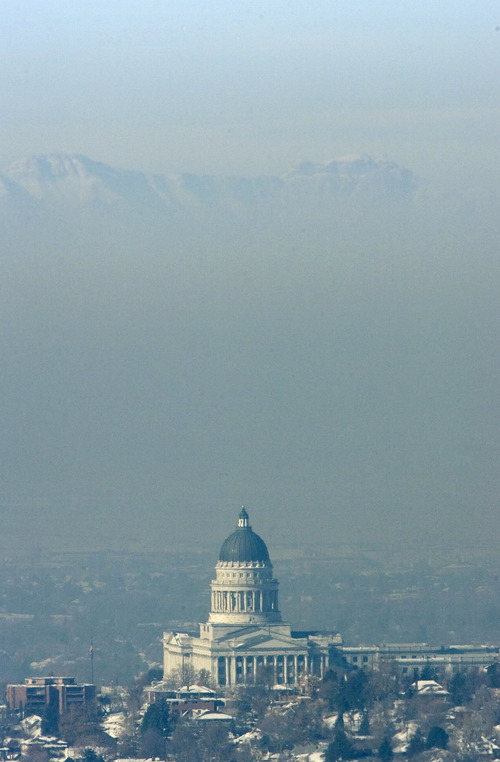This is an archived article that was published on sltrib.com in 2012, and information in the article may be outdated. It is provided only for personal research purposes and may not be reprinted.
The business case for keeping Utah's air clean is clear, Utah business leaders agree, even if the path forward can be a little murky sometimes.
Not only is the state's prized quality of life at stake, but also its access to transportation funding and future economic development, noted participants Thursday at the Salt Lake Chamber's 2nd annual Clean Air Conference. And, with the state's population expected to grow by 1.3 million by 2040, the pressure can only intensify to keep Utah's air breathable.
Chamber Vice President Ryan Evans said that his group has been active in clean-air issues since early in the 20th century, although interest fell off for a while. Recently, the issue has come into sharper focus because of winter inversion episodes that sometimes make Utah stand out nationally for being hazy and even unhealthy.
"There are so many layers to this conversation," said Evans, who heads up the chamber's air-quality efforts.
The Chamber used the Thursday's conference to unveil a brochure, "Utah Air Quality 101: It's Everybody's Business," which notes that the issue is more than clear skies.
"It affects our livelihoods and quality of life, with major implications for the future of Utah," the primer says. "Because this issue affects us all personally, it is everybody's responsibility to learn how it affects you and what you can do about it."
Utah's top air-quality regulator, Bryce Bird, talked Thursday about efforts to meet tightening federal regulations. Andrew Gruber, executive director of the planning group Wasatch Front Regional Council, discussed how transportation and urban planning can ease the challenges posed by the coming boom. Overstock.com's Paul Graziano described what his company is doing to keep the air clean, such as offering carpooling incentives.
"I don't think you'll find anyone who doesn't care about clean air," Graziano said.
Karen Hevel-Mingo, director of the health-advocacy group Breathe Utah, said she was pleased to see how the business community was taking an active role — especially when it comes to practical solutions. She pointed to the Chamber's Air Ambassadors program sharing best practices.
"It trickles into individual lives," she said of the clean-air ethic businesses can promote in the workplace.
Twitter: @judyfutah —
Chamber primer
O To view the chamber's "Utah Air Quality 101: It's Everybody's Business," go to http://bit.ly/TvOWZB





